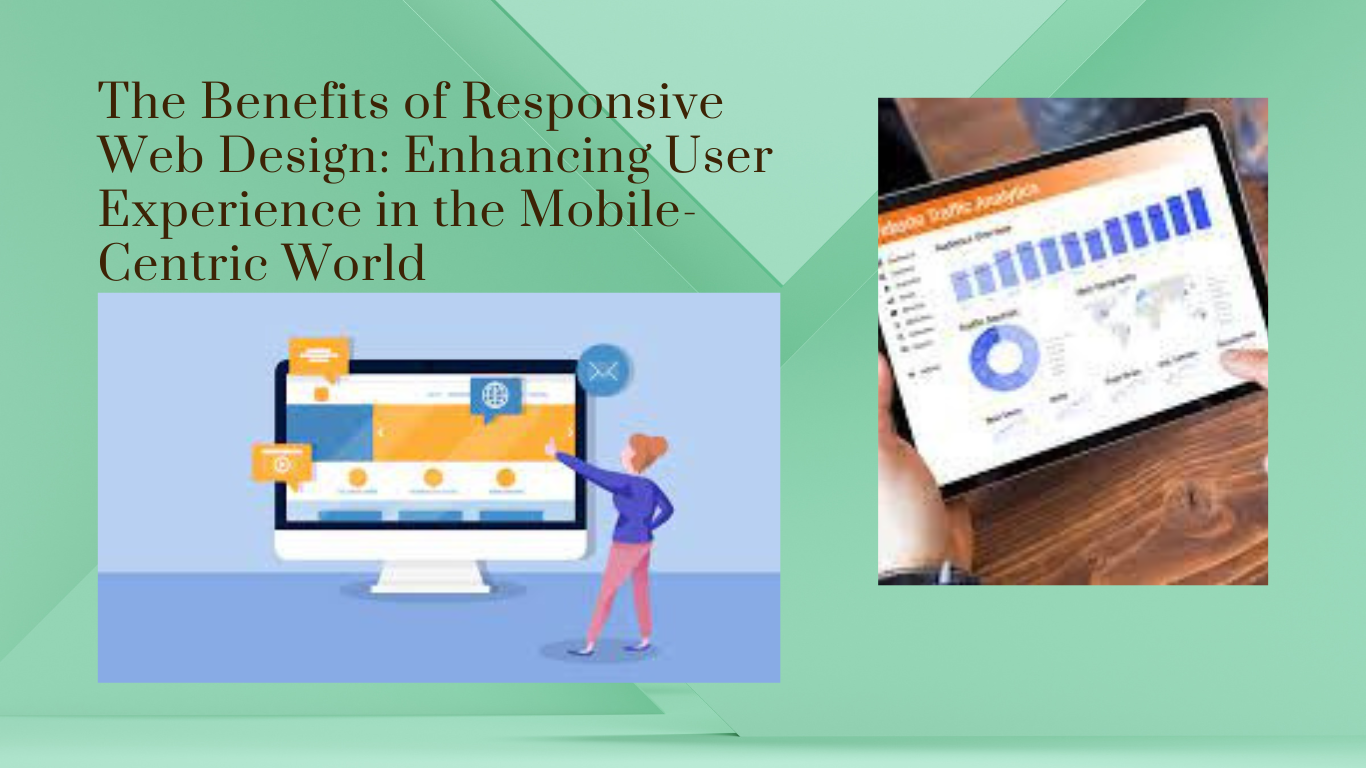
The Benefits of Responsive Web Design: Enhancing User Experience in the Mobile-Centric World
In the ever-evolving landscape of web development, staying ahead of the curve is paramount. One crucial aspect that has gained prominence in recent years is responsive web design. In this blog post, we’ll delve into the importance of responsive design and explore the myriad benefits it brings to the table, particularly in the context of user experience.
Why Responsive Web Design Matters in Web Development
1. Mobile-Centric World
In today’s digital era, mobile devices have become ubiquitous. More users access the internet on smartphones and tablets than ever before. Responsive web design ensures that your website adapts seamlessly to various screen sizes, providing an optimal viewing experience across all devices.
2. Improved User Experience
User experience (UX) is a critical factor that can make or break a website. Responsive design plays a pivotal role in enhancing UX by eliminating the need for users to zoom in, scroll excessively, or navigate through a distorted layout. A positive user experience translates to longer visit durations, increased engagement, and higher conversion rates.
3. Google’s Mobile-First Indexing
Search engines, led by Google, now prioritize mobile-friendly websites in their rankings. Responsive design aligns with Google’s mobile-first indexing approach, positively impacting your site’s visibility and search engine ranking. As web development professionals, incorporating responsive design is a strategic move to optimize for search engine algorithms.
4. Cost-Effectiveness
Maintaining separate websites for desktop and mobile platforms can be resource-intensive. Responsive web design streamlines the development process, reducing costs associated with managing multiple versions of a site. This cost-effectiveness makes it an attractive choice for businesses of all sizes.
5. Future-Proofing Your Website
Responsive design isn’t just a trend; it’s a fundamental shift in the way websites are developed. By implementing responsive design practices, you future-proof your website, ensuring it remains adaptable to emerging technologies and devices.
Conclusion: Elevating Your Web Development Strategy
In conclusion, responsive web design is no longer a luxury but a necessity in the realm of web development. The benefits extend beyond aesthetics, impacting user experience, search engine rankings, and overall business success. As you navigate the intricacies of web development, make responsive design a cornerstone of your strategy to stay ahead in today’s mobile-centric world.
Embrace the transformative power of responsive web design and unlock a multitude of benefits for your website and business. Start your journey toward a more user-friendly and adaptable online presence in the dynamic landscape of web development.
For expert insights and assistance in implementing responsive web design in your web development projects, contact us today.
FAQs:
Q1: Why is responsive web design important?
A1: Responsive design ensures optimal viewing across devices, enhancing user experience and SEO rankings.
Q2: How does responsive design impact SEO?
A2: Google prioritizes mobile-friendly sites, positively influencing search engine rankings.
Q3: Is responsive web design cost-effective?
A3: Yes, it streamlines development, reducing costs associated with managing multiple site versions.
Q4: Does responsive design future-proof my website?
A4: Absolutely, it adapts to emerging technologies, ensuring your site remains relevant and adaptable.
Q5: How can I implement responsive design in my web development projects?
A5: Consult with our experts for tailored strategies and seamless integration of responsive web design principles.
